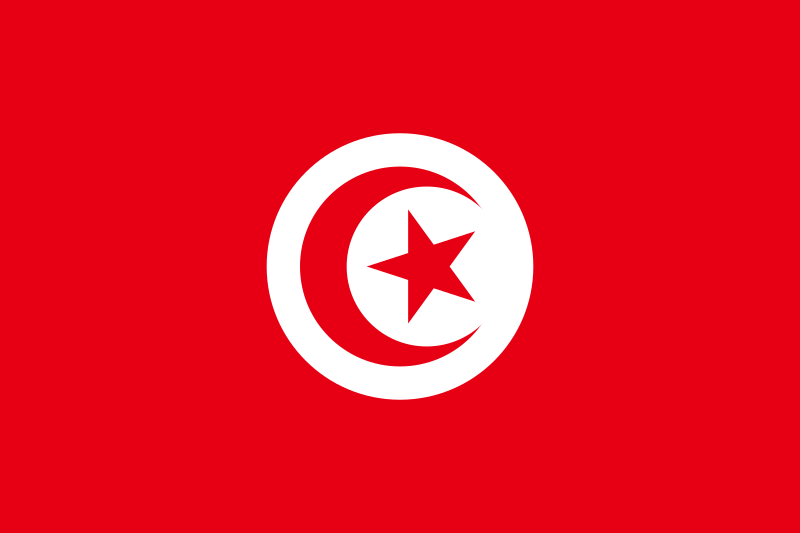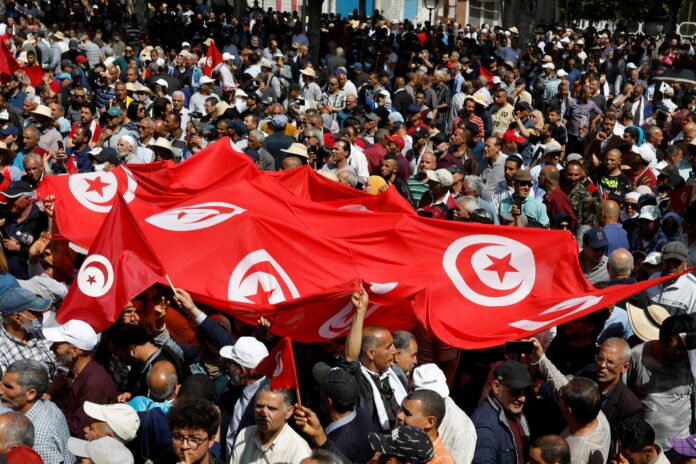Hundreds of Tunisian protestors gathered in the capital on May 12 to demand the release of journalists, activists, and opposition members who were imprisoned. The protests were also made in pursuit of the setting of a date for the country’s presidential elections.
The police stormed the building of the Deanship of Lawyers on Saturday to arrest Lawyer Sonia Dahmani who is known for her fierce criticisms of President Kais Saied, the current president of the North African country.
Earlier on, the Electoral Commission announced that elections would be held on time but has since then not been clear on the specific date.

President Saied assumed office in 2019 and seized additional powers some two years later when he shut down the elected parliament and moved to a rule by decree system, assuming authority over the judiciary in the process.
The President has criticized the opposition’s scramble for the presidency, saying that they had boycotted the last round of parliamentary elections while focusing on the presidential vote. He accused some candidates of being traitors and seeking protection abroad.
The opposition has also said that the climate is not favourable for holding elections despite restrictions placed on the press.
“Today, there is no climate for fair elections and there is no date… the authorities are repressing politicians, lawyers, and journalists…The storming of the lawyers’ headquarters yesterday is a dangerous precedent that perpetuates the authoritarian regime,” said Imed Khemiri, a senior official in the Ennahda party, a member of the Salvation Front of protestors.
One of the candidates, About Moussa, had been in prison for months while Minder Zanaidi announced his candidacy for a possible election from France as he could be arrested upon his return to Tunisia.
The 2024 presidential elections are expected to be held in September or October 2024, spokesman for the Independent High Authority for Elections (ISIE), Mohamed Tlili Mnasri, announced recently.
The Authority will begin preparations for the 2024 presidential elections just after the setting up of the National Council of Regions and Districts, he added.
Mnasri was speaking on the sidelines of a press briefing held by the ISIE on Sunday in Tunis.
Mnasri pointed out that, under the laws in force – which he said had not been amended – the presidential elections should be held within the constitutional timeframe, during the last three months of the presidential term.
Chapter 90 of the 2022 Constitution stipulates that the President is to be elected for a five-year term through a general, free, direct, and secret election within the final three months of the presidential term by an absolute majority of the votes cast.
We wish this beautiful country of Africa a favourable, free, and fair election.
Source: www.reuters.com , www.english.aawsat.com ,




